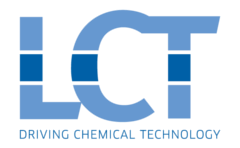Full-time, funded PhD position: Computational catalyst design for biomass conversion to sustainable aviation fuels
Aim
First-principles modelling-guided design of heterogeneous catalysts to convert biomass-derived small
molecules to long-chain sustainable aviation fuel precursors.
Context
The aviation sector contributes 14% of the CO2 emissions associated with transport in Europe, yet, it
will continue to rely on energy-dense liquid fuels for the foreseeable future. It is hence imperative to
develop sustainable alternatives. In this project, we aim to develop an innovative flow process that
combines heterogeneous and electrocatalysis for the conversion of aqueous bio-alcohols into aviation
fuels.
Process-modelling has shown that this low-temperature liquid phase route and the inherent separation
of the fuel precursor from the aqueous phase offer significant benefits over alternative high temperature
routes when it comes to the need for separation and CAPEX-intensive H2 production.
In this project, we will focus on studying the thermo-catalytic step in liquid phase. The multifunctional
catalyst must meet specific criteria to selectively produce long-chain precursors, taking into account
factors such as the nature of different active sites and the catalyst's porosity.
We will develop and test bifunctional heterogeneous catalysts which combine a metal active site with
acid or base sites. Within the COBICAT project, several types of catalysts will be synthesized and tested
using model reactants in an efficient small-scale batch reactor by another PhD student in the team
(already started).
The design of the multifunctional catalyst and the optimization of the reaction conditions will be guided
by computational catalysis.
Your role in your PhD research will be to tackle the computational catalysis part of the project. You
will investigate appropriate catalyst structures and support the characterization efforts of your colleague
through quantum chemical simulations.
Your work will start from an ongoing thesis project that explores appropriate computational
methodologies for investigating different catalysts. Several levels of theory will likely be needed,
depending on the research question, and you will build expertise on advanced computational catalysis
methods
Program
Under the supervision of a professor and a postdoc researcher in the team, you will prepare a
PhD dissertation over a duration of about 4 years. In these 4 years you publish and present
results both at international conferences and in scientific journals.
• You will investigate structure-reactivity relationships for the thermocatalytic condensation
reaction using advanced computational catalysis tools.
• You will support the interpretation of experimental results obtained by your project colleagues
at UGent.
• You will assist the research group with limited educational tasks in topics related to your
research.
